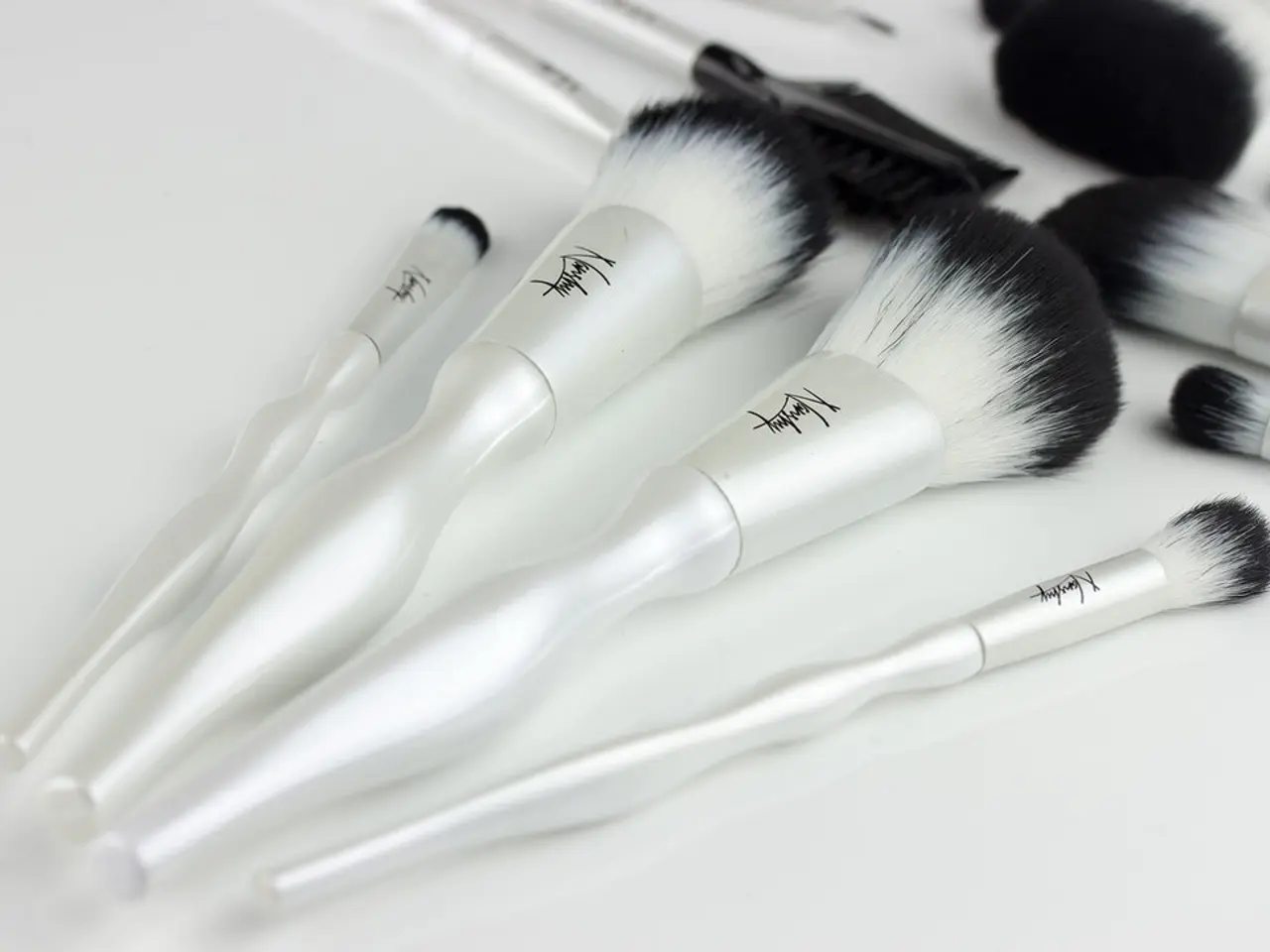A Cleanser: Definition Explored
Choosing the Right Facial Cleanser for Your Skin
Facial cleansers play a crucial role in maintaining healthy, clear skin. They are designed to remove dirt, oil, makeup, sweat, and dead skin cells from the face, preventing issues like acne and blackheads.
Before using a new cleanser, it's always a good idea to patch-test it first to ensure it suits your skin. Wait 24 hours after application to check for any reactions.
Different types of facial cleansers are formulated to cater to various skin types and needs. Here's a breakdown of the most common types:
- Gel cleansers are often suitable for oily or combination skin. They provide a refreshing finish while effectively removing excess oil and impurities without heavy moisturization.
- Cream or milk cleansers are thicker, moisturizing cleansers, ideal for dry or sensitive skin. They cleanse gently while providing hydration and supporting the skin barrier, making them suitable for daily use, especially for dry or sensitive complexions.
- Oil-based cleansers are great for removing makeup, sunscreen, and heavy grime. They are suitable for all skin types, including sensitive skin, as they cleanse without stripping natural oils.
- Foaming cleansers create lather and are recommended for oily skin due to their ability to control sebum and unclog pores. However, some foaming cleansers can be drying if not well-formulated.
- Non-foaming cleansers are typically creamy or gel-like and mild. They do not produce much lather and are preferred for dry or normal skin as they hydrate and protect the skin barrier.
- Exfoliating gel cleansers may contain ingredients like salicylic acid or willow bark extract for mild exfoliation and acne control, making them beneficial for acne-prone or oily skin.
The table below shows the recommended cleanser types for different skin types and their benefits:
| Skin Type | Recommended Cleanser Type | Benefits | |--------------|------------------------------------|-------------------------------------------------------| | Oily | Gel cleansers, foaming cleansers, exfoliating gels | Control excess oil, deeply clean pores, prevent acne | | Dry | Cream/milk cleansers, non-foaming cleansers | Hydrate, gently cleanse without stripping moisture | | Sensitive | Cream cleansers, oil-based cleansers | Gentle cleansing, reduce irritation, maintain barrier | | Combination | Gel cleansers or mild foaming cleansers | Balances oily and dry areas | | Makeup-heavy | Oil-based cleansers | Effectively dissolve makeup and sunscreen |
When choosing a cleanser, consider your lifestyle, such as if you wear makeup or sunscreen daily or spend plenty of time outdoors. For example, oil-based cleansers may be more suitable for those with makeup-heavy routines.
Modern cleansers are often designed to be gentle and free of sulfates and parabens. It's best to avoid harsh surfactants, sulfates, and artificial fragrances when choosing a cleanser.
A good cleanser should leave your skin feeling clean and refreshed but not tight or dry. For dry skin, use a cleanser with ingredients like jojoba oil, hyaluronic acid, or glycerin. Cleansing can strip away your skin's natural oils, so it's important to follow up with a lightweight, oil-free moisturizer to maintain balance.
For oily skin, use a gel or foam cleanser with ingredients like salicylic, lactic acid, or niacinamide. In winter, use a hydrating cleanser to prevent dryness, and in warmer months, use a foaming or gel cleanser to control excess oil.
When choosing a cleanser, it's best to identify your skin type, check the ingredients, and do a patch test. It's also important to remember to cleanse your skin twice daily—once in the morning and once at night—to maintain a healthy, clear complexion.
- Sensitive skin might benefit from using cream or milk cleansers or oil-based cleansers, as they are gentler and help to reduce irritation.
- It's essential to use a gel or foam cleanser with ingredients like salicylic, lactic acid, or niacinamide for acne-prone or oily skin.
- A cleanser with ingredients like jojoba oil, hyaluronic acid, or glycerin is suitable for dry skin, as it helps to hydrate and maintain the skin's natural balance.
- In warmer months, those with oily skin should use a foaming or gel cleanser to control excess oil, while in winter, a hydrating cleanser is ideal to prevent dryness.
- Modern cleansers are usually designed to be gentle, free of sulfates and parabens, and without harsh surfactants or artificial fragrances.
- When it comes to a skincare routine, it's crucial to cleanse your skin twice daily—once in the morning and once at night—to maintain a healthy, clear complexion.
- Choosing the right facial cleanser involves understanding your skin type, checking the ingredients, and doing a patch test, ensuring it suits your skin and lifestyle.








